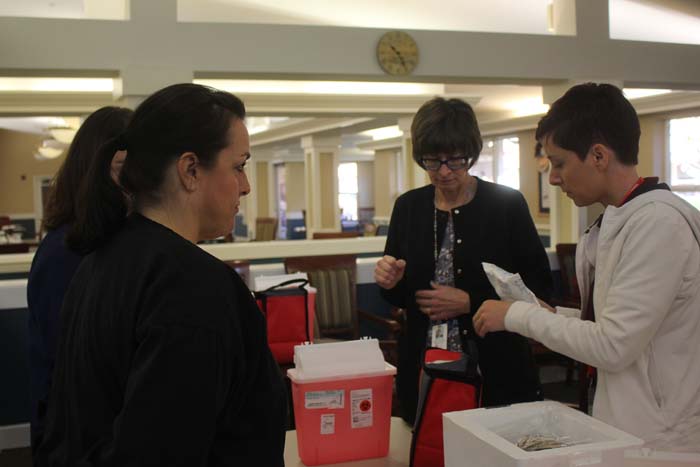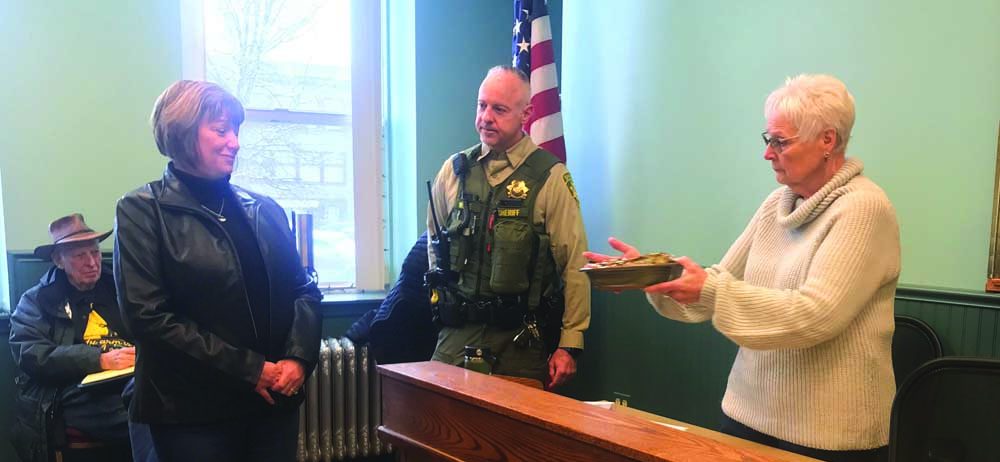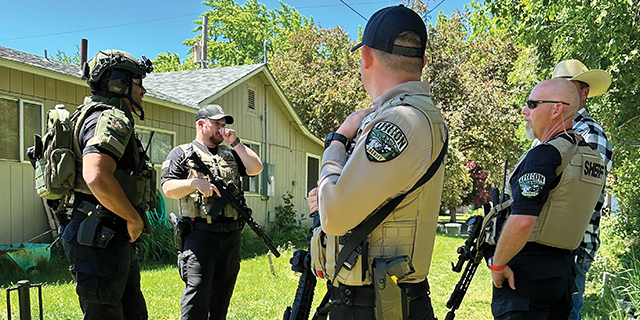Training conducted for disease outbreak
Published 7:30 am Saturday, October 20, 2018

- Training conducted for disease outbreak
While much of previous county-wide emergency training has been about fires or earthquakes, a training conducted on Wednesday focused on what may actually be the biggest threat facing Union County — a pandemic.
The training focused on the elderly and occurred at Post Acute Rehab, Wildflower Lodge and Grande Ronde Retirement Residence. When it comes to disease, the elderly are among the most vulnerable in the population, and recently the state has made new requirements for senior living homes to conduct emergency training to prepare for a mass outbreak.
Carrie Brogoitti, public health administrator at the Center of Human Development, acted as incident command for the day-long training. The goal was to administer the flu vaccine to residents of the three homes as quickly and orderly as possible. The CHD and residence staffs were told to act as if this were a real-life situation, even though the seniors have the flu vaccine administered every year.
“The point isn’t about giving flu shots, but working with incident command,” Brogoitti said to the group before the scenario began.
A Point of Dispensing was set up, which is a centralized location set up to vaccinate and then move residents out of the area as quickly as possible. The three groups did their best to keep the line moving and, when possible, had those receiving the shots come in one entrance and exit through another.
“In a mass vaccination, we’d be vaccinating the entire community,” she told The Observer. “These are the most likely to get sick and they live in close quarters. In a public health emergency, I’d be the one to make the decision (if mass vaccinations were needed).”
The response to an outbreak is dependent on the disease. There are regulations on when to declare an outbreak depending on the amount of people who have contracted the disease.
From H1N1, a serious flu that made headlines in years past, to a biochemical terrorist attack, communities need to know how to deal with something on a massive scale. This training got Union County that much closer.
“It’s easy to think nothing like this will ever happen here,” she said. “People can (prepare) themselves.”
Brogoitti said having the essentials on hand — medications, water and food — for a long-term emergency will better prepare a family.
Steve Hamilton, administrator at Post Acute Rehab, said this was the first time his staff has been involved in such a training. At Post Acute, there are 40 residents and 40 staff members who would have been vaccinated in this scenario.
“The more training we have, the easier it becomes,” he said. “We will find out what the strong and weak points are.”
Hamilton said in a real-life scenario, one challenge would be having the right amount of vaccinations available.
Elizabeth Sieders, communicable disease nurse at CHD, acted as the operations chief for the training. In her role, the Grande Ronde Hospital nurses who administered the vaccines would look to Sieders for set up and oversight. Sieders was also responsible for getting the right amount of vaccines for everyone — or determining who would have vaccine priority if the county was running low.
“We would have to prioritize,” she said. “Find out who the patients are that are at the highest risk.”
Sieders said if the outbreak was widespread across the state or nation, Union County would move down the priority list. If the outbreak is more locally contained, the vaccine would be accessible.
She said the training was eye-opening for her.
“It shows us what I, or we, need to learn,” she said. “You don’t know what you don’t know.”
Wildflower Executive Director Anthony Swales is familiar with trainings like this because of his background as a volunteer firefighter with La Grande Rural Fire Department.
He said he prepared his staffing by conducting meetings to discuss what the training will entail.
“Normally, we wouldn’t have so many people involved (in administering the flu vaccine),” he said.
At Wednesday’s training, there were 120 total residents and staff signed up to receive the flu vaccination.
See more in Friday’s edition of The Observer.





